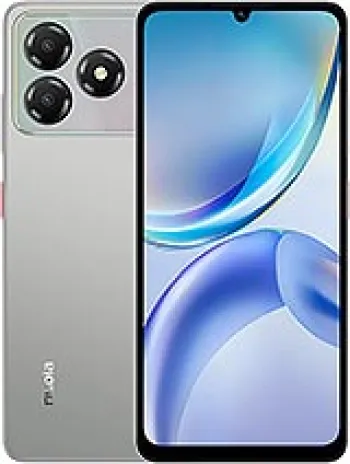
Overview of ZTE Blade III
The ZTE Blade III is a budget-friendly smartphone that was released in September 2012. It is known for its affordability and basic smartphone features that cater to users looking for essential functionalities without the high price tag. Despite being discontinued, the ZTE Blade III provides a glimpse into the smartphone technology of the early 2010s.
Design and Build
The ZTE Blade III sports a minimalist design with dimensions of 123 x 63.5 x 10 mm and a weight of 130 g, making it compact and easy to handle. It features a plastic body with rounded edges, typical of smartphones from its era. The device is available in black and white color options, appealing to users who prefer classic color choices. It supports a Mini-SIM card slot, which was standard for phones at that time.
Display
This smartphone is equipped with a 4.0 inch TFT display that offers 65K colors, with a resolution of 480 x 800 pixels. The screen offers decent clarity with a pixel density of approximately 233 ppi. While the color production and sharpness are limited compared to modern standards, it was adequate for basic use, including web browsing and media viewing.
Performance
At the heart of the ZTE Blade III is the Qualcomm MSM7227A Snapdragon S1 chipset. It features a 1.0 GHz Cortex-A5 CPU and an Adreno 200 GPU. Paired with 512MB of RAM, this configuration provides sufficient performance for basic smartphone operations like calling, texting, and running lightweight applications. However, it struggles with more demanding applications due to the limitations of its hardware.
Camera Capabilities
The ZTE Blade III is equipped with a 5 MP main camera featuring autofocus (AF). It supports video recording capabilities, albeit at basic quality levels. The camera captures decent photos in good lighting conditions but struggles in low-light environments. There is no dedicated selfie camera, reflecting the trend of that time when front-facing cameras were not as prevalent as they are today.
Battery Life
The device is powered by a removable Li-Ion 1600 mAh battery. For its time, this battery capacity offered reasonable endurance, particularly considering the lower power demands of its hardware. Typically, users could expect a full day of usage on a single charge under regular use conditions.
Storage and Memory
The internal storage of the ZTE Blade III stands at 4 GB, with approximately 2.5 GB available to the user. It features a dedicated microSDHC slot, allowing for expandable storage to accommodate more apps, photos, and media. 512 MB of RAM is provided, which is quite modest by modern standards but chosen based on the typical application needs at the time of its release.
Connectivity and Additional Features
The ZTE Blade III offers connectivity options such as Wi-Fi 802.11 b/g/n with Direct, hotspot, DLNA capabilities, Bluetooth 2.1 with A2DP, GPS with A-GPS support, FM radio, and a microUSB 2.0 port. The inclusion of these connectivity options allowed users to join Wi-Fi networks, connect Bluetooth devices, and navigate using GPS.
Operating System
Running on Android 4.0 (Ice Cream Sandwich), the ZTE Blade III provided users with a basic yet intuitive Android experience. This version of Android included several improvements and features from its predecessors, like Face Unlock and an improved user interface.
Sensors and Audio
The smartphone comes with essential sensors such as an accelerometer, proximity sensor, and compass. For audio, it includes a 3.5mm headphone jack and a loudspeaker, supporting basic audio functionalities for music, calls, and media playback.
Price and Availability
Upon release, the ZTE Blade III was priced at approximately 190 EUR. It targeted budget-conscious consumers who needed basic smartphone capabilities. As of now, the device is discontinued, but its affordability made it a popular choice during its active production years.
Conclusion
The ZTE Blade III serves as an example of what budget smartphones offered during the early 2010s. While its specifications and features may seem limited compared to modern devices, the Blade III provided users with essential smartphone functions at an accessible price. It is remembered for its role in making smartphone technology more accessible to a broader audience.
ZTE Blade III Key Features
- Technology support for GSM and HSPA networks.
- Compact dimensions of 123 x 63.5 x 10 mm with a weight of 130 g.
- 4.0-inch TFT display with a resolution of 480 x 800 pixels.
- Powered by Android 4.0 Ice Cream Sandwich OS.
- Equipped with Qualcomm MSM7227A Snapdragon S1 chipset and 1.0 GHz Cortex-A5 CPU.
- 5 MP autofocus main camera with video recording capability.
- Expandable storage via microSDHC card slot.
- Removable Li-Ion 1600 mAh battery.
- Connectivity features include Wi-Fi, Bluetooth 2.1, GPS, and FM radio.
- Includes sensors such as accelerometer, proximity, and compass.
Disadvantages of ZTE Blade III
- Outdated Android 4.0 (Ice Cream Sandwich) operating system.
- Low memory capacity with only 512MB RAM, which may affect multitasking performance.
- Limited internal storage of 4GB, with only 2.5GB available to the user.
- Low screen resolution (480 x 800 pixels) with a low pixel density (~233 ppi).
- Basic 5 MP rear camera with no additional features and no front-facing camera.
- Older Bluetooth version 2.1, lacking support for modern Bluetooth features.
- Processor (1.0 GHz Cortex-A5) may not handle demanding applications efficiently.
- Discontinued product, meaning no future software or security updates.
- No support for 4G LTE, limited to 3G speeds.


View Also
More Phones
All Rights Reserved +14038 Phones © Mobilawy 2025

























